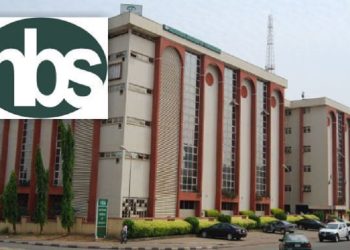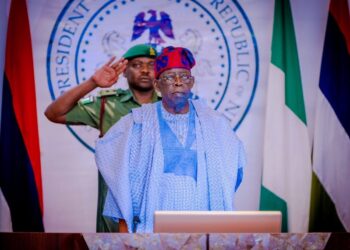The Nigerian Naira has depreciated significantly against the U.S. dollar, losing more than N100 at the official exchange window. According to data from the Nigerian Autonomous Foreign Exchange Market (NAFEM), the Naira was exchanged at N1,656/$1 on Tuesday, a notable increase from N1,546/$1 recorded the previous day.
Despite Nigeria’s inflation showing signs of easing, with the headline inflation rate dropping to 32.15% in August from 33.40% in July, the currency struggled against the dollar. The Nigerian Bureau of Statistics (NBS) attributed this decline in inflation to the reduced cost of food during the harvest season. Food inflation also saw a reduction, falling to 37.52% in August from 39.53% in July.
However, while the Naira weakened at the official market, it appreciated slightly in the parallel market, gaining N5 and trading at N1,660/$1 compared to N1,665/$1 the previous day.
U.S. Dollar Strengthens Ahead of Federal Reserve Decision
The drop in the Naira’s value came as the U.S. dollar gained strength globally, buoyed by higher-than-expected retail sales data in the United States. The U.S. Dollar Index, which tracks the greenback against six major currencies, saw an uptick as investors anticipated the Federal Reserve’s next move on interest rates.
The U.S. Federal Reserve is expected to announce its decision on interest rates later today. While market sentiment suggests a potential 50-basis point rate cut, many analysts predict a more modest 25-basis point cut, given the current economic data.
The U.S. labor market continues to show resilience, which has led to increased optimism about the country’s economic recovery. This positive outlook has made it less likely that the Federal Reserve will adopt aggressive rate cuts in the near term, despite some market speculation.
U.S. retail sales increased by 0.1% in August, signaling economic stabilization. Investors are now closely watching the Federal Reserve’s policy decision, the first since its COVID-19-related rate cuts in March 2020.
Implications for Nigeria
As the U.S. dollar strengthens, emerging markets like Nigeria may face additional pressures on their currencies. Nigeria is expected to experience some foreign capital inflows later in the year, but the Federal Reserve’s cautious stance on rate cuts might limit the impact of these inflows on stabilizing the Naira.
With the dollar index rising 0.199% to 100.90 on Tuesday, the global strength of the dollar is making it increasingly challenging for the Naira to hold its value. As market players await further economic data from the U.S., Nigeria’s currency markets remain volatile, and any significant changes in U.S. monetary policy could have further implications for the Naira’s performance in the coming weeks.
Investors and analysts will be closely monitoring the Federal Reserve’s decision and its potential ripple effects across global financial markets, including Nigeria’s struggling currency.










